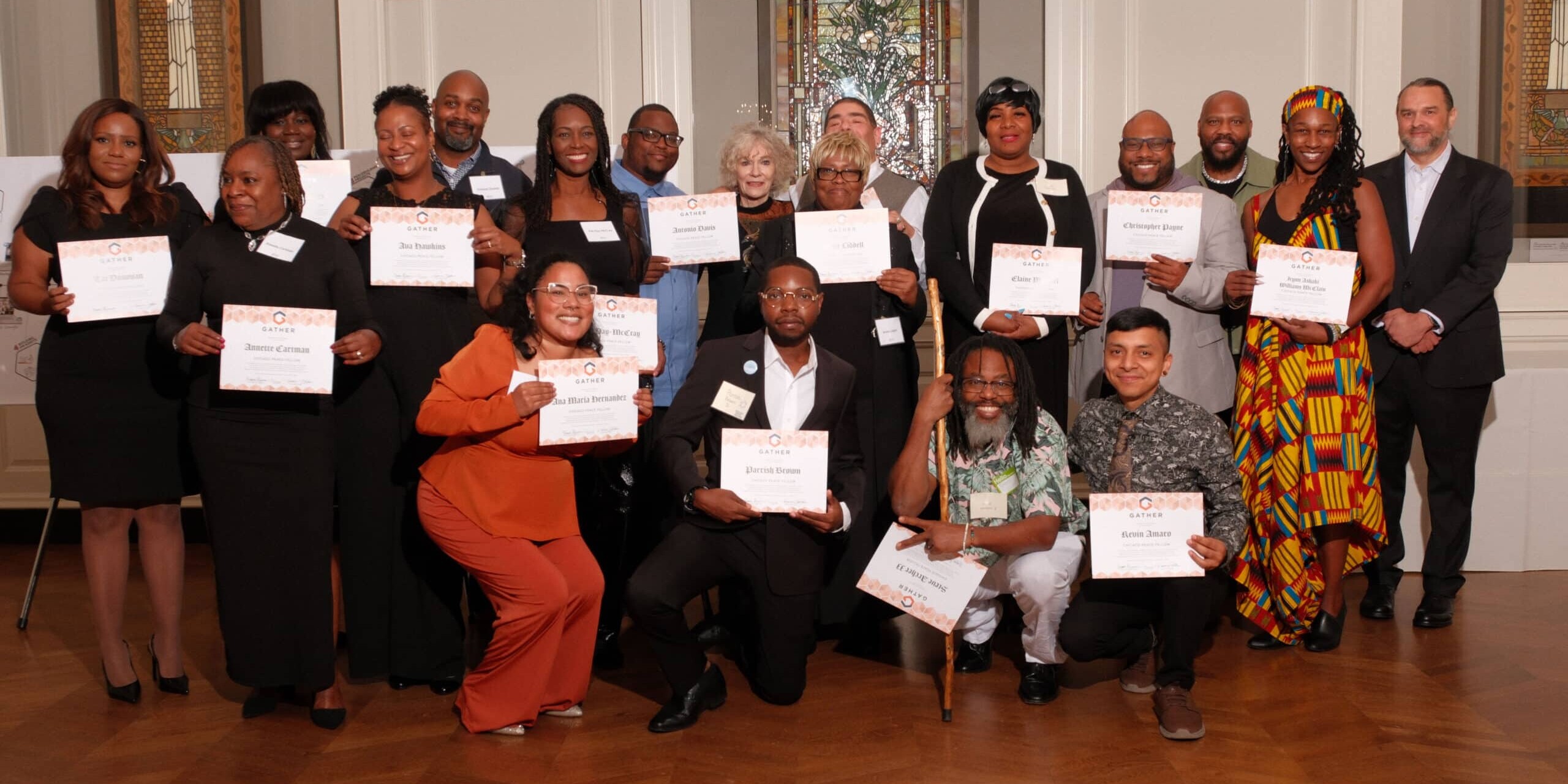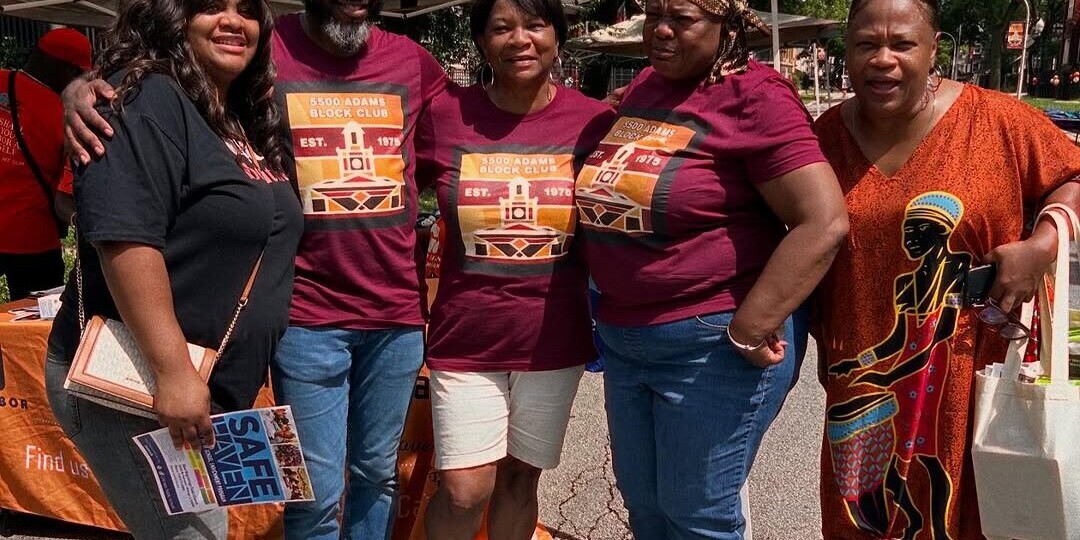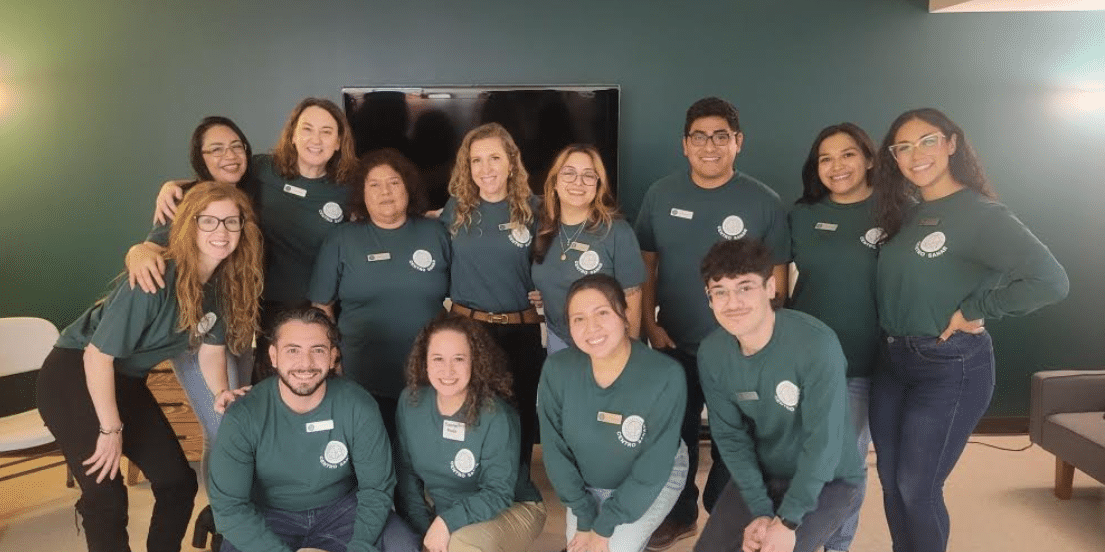On July 16, the Peace Fellows met with one of Chicago’s most influential elected officials, Alderman Walter Burnett of the 27th Ward. Fellows Jacquelyn Moore, Pamela Butts, Jeanette Coleman, Gloria Smith and Adi Lerner as well as Goldin Institute Executive Director Travis Rejman and Coordinator Burrell Poe met with Ald. Burnett in his City Hall office.
The conversation began with an overview of the Chicago Peace Fellows program and then Travis set the context by asking how the Peace Fellows can enhance city-wide initiatives and, more generally, how grassroots leaders can connect and collaborate with their elected representatives.
Fellows Jackie Moore, Pam Butts and Adi Lerner all work with organizations that need additional space for programming, and asked Ald. Burnett if his office could assist them with accessing facilities owned by the city. The alderman explained that the city controlled mostly vacant tracks of land as well as distressed properties, which can be turned over to not-for-profit organizations if they have the resources to rehab, maintain and secure the buildings. The city prefers to sell former firehouses and empty school buildings to the highest bidder, while the county-controlled Land Bank has properties in their portfolio, the alderman added. Newly elected Mayor Lori Lightfoot is changing procedures to reduce aldermanic control, but may make the community’s input a more significant factor in determining the fate of the properties.
Responding to a request, Ald. Burnett offered to introduce Peace Fellow Gloria Smith of the Black Star Project to an official at the city’s Streets and Sanitation Department who might be able to help expand her group’s neighborhood clean-up program from a month-long to a year-around effort.
Ald. Burnett also discussed the city’s violence prevention efforts, noting that he was waiting for the new mayor to announce her administration’s strategy and reveal her priorities in the upcoming budget. He was personally motivated to see a reduction in the frequency of gun violence, noting that the son of one of his staff members was shot 3 times the previous weekend.
Burnett has a special perspective on the issue both as an elected official and as an ex-felon himself. At 17 years old, Burnett participated in a bank robbery and pled guilty to a charge of armed robbery, for which he was incarcerated for two years and three months. Today, he maintains relationships with many different neighborhood residents as well as with police officers.
[quote]I know people on the corners. I know the people coming home from prison. I know those guys, but I also know the police. The police ask me for help but they have a different perspective, a different job. — Alderman Walter Burnett[/quote]
Burnett hopes that others who emerge from prison will be involved positively in peace-making. Often, these men fear that communicating with their former peers will leave them vulnerable to further criminal prosecution, but Burnett pointed out that Ceasefire and other programs have successfully employed these men to negotiate truces between rival factions and obviate violent incidents before they happen.
[quote]My way is to work behind the scenes to interrupt the cycle of violence. I’m an ex-offender, I know what this is like and what people can do. For me, it’s like a ministry.[/quote]
Peace Fellow Adi Lerner asked the alderman what the top priority should be for local government officials in this environment, noting, “For many people in our community, they don’t see any help from the city.”
Ald. Burnett answered that jobs and economic opportunities were essential to reducing the incidence of violence in the short term, and that long-term plans would have to be implemented.
Several participants noted, however, that programming to reach younger teens was also necessary. Jackie Moore said employment was essential as part of a holistic package that includes education and social services for young men at risk of criminal behavior.
[quote]They want the things that jobs can give them. Responsibility and hope. They get criminalized so quickly and then the path to the future is closed. They can’t get jobs if they have a record. We need to focus on teens that may have made a mistake to make sure they have a path forward outside the streets. — Jacquelyn Moore[/quote]
Peace Fellow Pamela Butts noted that many of the young people in her programs are confined to certain areas because of gang boundaries: “We have programs for the kids that do well academically. We have things for athletes. We have things for kids that are in trouble. We don’t have anything for the kids in the middle. How can we take better care of the kids that aren’t already high achievers or at risk and tailor things to what they are actually interested in?”
Alderman Burnett quickly agreed, and said that even young people participating in programing in his office had to navigate gang lines: “The biggest challenge I see is that everyone feels invisible. We need to talk to people, especially kids. They want to hear from us. We need to adopt our kids and make them feel like kids, otherwise they try to act like adults when they need to be cared for.”







